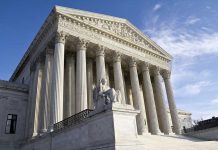
The US Trade Office has launched a significant investigation into the alleged human rights abuses in Nicaragua, opening the doors to potential global repercussions.
At a Glance
- The U.S. Trade Representative’s Office is investigating labor abuses in Nicaragua.
- The investigation targets alleged labor and human rights abuses under President Ortega’s government.
- The findings could affect trade relations between the US and Nicaragua.
- Nicaragua faces reports of politically motivated arrests and extrajudicial killings.
- A report highlights severe torture methods allegedly used on political prisoners.
Details of the Investigation
The Office of the U.S. Trade Representative is scrutinizing Nicaragua’s labor practices, emphasizing labor and human rights violations. This move comes as the Biden administration responds to concerns over President Daniel Ortega’s authoritarian government. The focus is on labor rights, human rights, and the rule of law, areas where the government has drawn substantial international criticism. Ortega, alongside his wife, has gradually strengthened control over the government, leading to numerous accusations of oppression.
Concurrent with the investigation is skepticism over Nicaragua’s adherence to global human rights standards. The International Human Rights Day coincides with this probe, stressing the gravity of the accusations and aligning with global human rights advocacy efforts. Reports indicate politically driven arrests and extrajudicial actions thought to stab deeply into the country’s socio-economic fabric, affecting worker exploitation and trade.
US officials to investigate labor and human rights abuses in Nicaragua https://t.co/mf9bzVKzkR
— KX News (@KXMB) December 10, 2024
Implications for US-Nicaragua Relations
Potential outcomes of the U.S. investigation could strain trade relations, possibly altering existing trade agreements under the scrutiny of the Trade Act of 1974. Previously, the U.S. imposed sanctions on several Nicaraguan officials for alleged human rights violations. The repercussions of this ongoing examination could exert additional pressures, aiming to curb unchecked government actions that harm not only Nicaraguan citizens but also broader regional economic stability.
Katherine Tai, U.S. Trade Representative, emphasizes a shift towards a worker-centered trade policy. Her approach underscores the broader U.S. commitment to fair competition and holds repressive regimes accountable. She mentions, “Unfortunately, numerous reports suggest the Government of Nicaragua is engaging in repressive acts that harm Nicaragua’s own workers and people, undermine fair competition, and destabilize our region.”
Controversies and Humanitarian Concerns
The U.S. investigation coincides with numerous allegations, including a detailed report by the Nicaragua Never Again Human Rights Collective citing torture of political prisoners. At least 229 political prisoners have allegedly suffered crimes against humanity since 2018, painting a grim picture of the current human rights scenario in Nicaragua. The report details torture methods following a government crackdown on social unrest.
These alleged practices demand stringent international oversight to address systemic human rights abuses and to ensure that Nicaraguan leadership adheres to democratic principles. The U.S. remains poised to address these issues as part of its broader international human rights endeavors.
Sources
- The Office of the U.S. Trade Representative is opening a labor abuse investigation into Nicaragua
- US Investigates Nicaragua for Labor and Human Rights Abuses
- US trade office starts probe into Nicaragua human rights and labour abuses

















